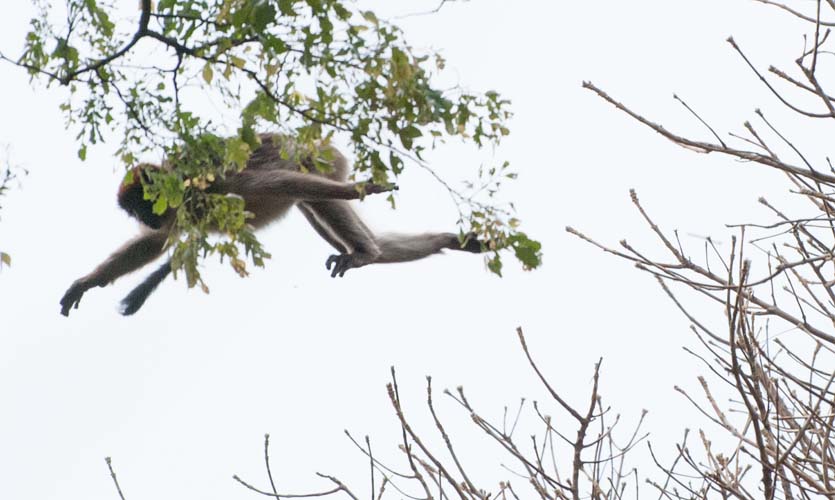A study of the chimpanzee precursor of HIV-1 could lead to a better AIDS vaccine

Liverpool John Moores University has been part of an international research team, led by Professor Beatrice Hahn and colleagues at the Perelman School of Medicine, who have been studying the origin of HIV-1 in non-human primates for decades. They previously discovered that simian immunodeficiency viruses (SIVs) infecting wild-living chimpanzees and gorillas jumped the species barrier into humans on four occasions, one of which spawned the AIDS pandemic. Understanding how these viruses are transmitted within and between species may reveal clues for novel vaccine strategies in humans.
HIV and SIV infect and kill immune cells called CD4 T cells, a process that ultimately leads to AIDS. Publishing this week in the Proceedings of the National Academy of Sciences, Hahn’s lab and an international team of collaborators, found that the CD4 surface protein, which is used by HIV and SIV as the receptor to enter immune cells, is highly variable among wild chimpanzees. Characterizing fecal samples from over 500 chimpanzees across sub-Saharan Africa, they found, to their surprise, nine CD4 variants. They went on to demonstrate that this diversity in CD4 protects chimpanzees from their own strain of SIV, as well as potentially dangerous SIVs carried by other monkey species on which they prey.
SIVs infect over 40 primate species in sub-Saharan Africa and can be deadly. Hahn’s group showed in previous studies that SIV-infected chimpanzees in the wild have a higher mortality than uninfected chimpanzees and can develop an AIDS-like disease, like that in humans.
Drs Alex Piel and Fiona Stewart, who are based at the LJMU School of Natural Sciences and Psychology and who have collaborated with the Hahn lab since 2011, commented: “SIVcpz infection remains a very potent and dangerous pathogen to those communities infected with the virus, including the Issa chimpanzees in Tanzania where Dr Stewart and I work. From nearby Gombe National Park, we know the detrimental effects on the health, survival and fecundity of infected chimpanzees. The current work demonstrates the progress being made to understand the mechanism of infection and the spread of the disease in wild chimpanzee populations, which is essential for effective conservation of this endangered ape.”
Further information is available at Penn Medicine News
Photo Credit: Ian C. Gilby


